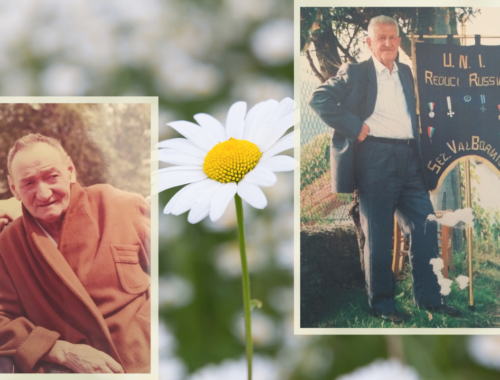
I Count My Blessings
In all relationships there must be a sharing in the tasks of everyday life: you cook, I do the dishes; you take out the garbage, I hoover. In my family (two people and a cat) when there is to write (could be a greeting card or a work email), the task is mine. Some days ago a couple of friends had a baby, consequently a few days later: – What do I write on the card? You cannot always be inspired: I wrote rapidly and half-heartedly:
– Welcome little one and a hug for her parents for the demonstrated recklessness.
– Recklessness ?
– Of course! Do you think a reasonable person could light-heartedly bring a child into the world?
– Ok, but you think we should point that out?
– Someone has to.
I tried to be constructive and, knowing that the new mum is very religious, I suggested :
– maybe you can add that passage of The Prophet by Gibran, that one about the children, so it looks like it’s a good thing.

A distant relative of mine wrote it on her first-born’s baptism invitation card… My parents, on the other hand, had put on my baptism invitation the last lines from The Night-Song of a Wandering Shepherd of Asia.
Or maybe my mind’s straying from the truth
Giacomo Leopardi, Canto notturno di un pastore errante dell’Asia. Translated by Jonathan Galassi.
imagining the fate of others.
Maybe in whatever form or state,
whether in stall or cradle,
the day we’re born is cause for mourning

For years I adduced to this debut my little tolerance for religion and believers: you baptised me quoting an atheist, you could n’t have expected anything else, could you? Today, however, I see the meaning of such a wish. In the poem “is cause for morning” translates the Italian adjective funesto, which literally means deadly or fatal (that bring death; from the Latin Funus, funeris, meaning funeral). Only mortal creatures are brought into this world, as Leopardi’s little old white-haired man and his pensive shepherd; but because each one of us is led to that “terrible, immense abyss” (Leopardi’s famous for sugaring the pill), we’re free. Any parent, however unprepared, unaware and perhaps absolutely inadequate to the task, gives birth to a creature not destined to last. A child who may even not outlive them and therefore does not belong to them. I have no idea what my parents had thought when they chose those verses. Years later, my mum told me that every child born into this world deserves a blessing. With mine they told me that life, although it may not be short, has an end; that my time, which they gave me with that reckless act, is finite and that, precisely for this reason, I’m free. So, thank you.


Déjà vu on London Bridge

Cookies and Minimalism
You May Also Like

Bella Ciao
25th April 2020
Curious Notions
11th November 2016